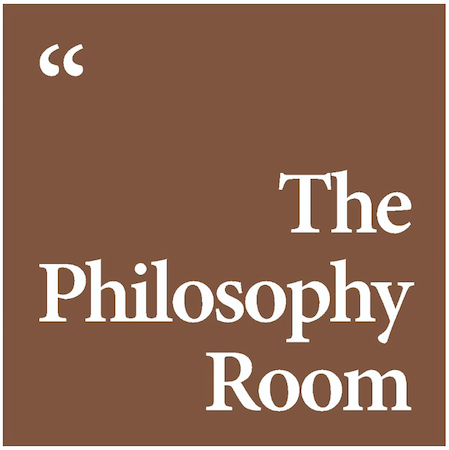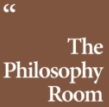Deontological Ethics
1) What is Deontology?
Deontology, also known as deontological ethics, is a moral theory that focuses on the inherent rightness or wrongness of actions. It derives its name from the Greek word “deon,” which means duty or obligation. Deontological ethics emphasizes the importance of following certain moral rules and duties, regardless of the consequences or outcomes that may result from those actions.
At its core, deontology is based on the belief that there are certain universal moral principles that guide ethical decision-making. These principles are considered to be absolute and unchanging, providing a framework for individuals to determine the morality of their actions. Unlike consequentialist theories that prioritize the outcomes or consequences of an action, deontological ethics places emphasis on the intention and adherence to moral rules.
One of the key figures associated with deontological ethics is the philosopher Immanuel Kant. Kant argued that moral duties are derived from reason and rationality, rather than personal desires or emotions. According to Kant’s categorical imperative, individuals must act in a way that they would want everyone else to act in similar circumstances, treating others as ends in themselves rather than as means to an end.
Deontological ethics also recognizes the importance of moral absolutes, or principles that must always be followed regardless of the situation. For example, the principle of honesty dictates that one must always tell the truth, regardless of the potential negative consequences. These moral absolutes provide a sense of moral duty and obligation, guiding individuals in making ethical choices.
2) Agent-centred Deontology
Agent-centred deontology is a variation of deontological ethics that places a strong emphasis on the moral character and intentions of the individual agent. While traditional deontology primarily focuses on the morality of actions, agent-centred deontology shifts attention to the moral worth of the person performing those actions.
In agent-centred deontology, the emphasis is on cultivating virtuous traits and character qualities within oneself. The moral worth of an action is determined not only by its conformity to moral rules but also by the virtuous disposition of the agent who performs it. This approach acknowledges that ethical decision-making involves more than just following prescribed rules; itrequires individuals to cultivate moral virtues such as honesty, compassion, integrity, and fairness.
The agent-centred perspective recognizes that individuals have moral responsibilities not only towards others but also towards themselves. It encourages self-reflection and the development of a morally virtuous character. This means that individuals are not solely judged by the external consequences of their actions, but also by their internal motivations and the integrity with which they carry out their moral duties.
Unlike action-based deontology, which may permit certain actions if they conform to moral rules, agent-centred deontology places a greater emphasis on the internal dispositions and motivations of the agent. For example, while traditional deontology may view a person as morally upright for fulfilling their duty to help others, agent-centred deontology would also consider the genuine care and concern the individual has for others in performing that action.
By focusing on the character of the agent, agent-centred deontology aims to foster moral development and cultivate virtues within individuals. It acknowledges that ethical behaviour extends beyond mere rule-following and encourages individuals to strive for moral excellence in their actions and intentions.
2) Patient-centred Deontology
Patient-centred care is an approach to healthcare that prioritizes the needs, values, and preferences of the patient. It places the patient at the centre of the decision-making process and seeks to ensure their autonomy, dignity, and well-being. When viewed through a deontological lens, patient-centred care aligns with the fundamental principles of deontological ethics, which emphasize respect for individual autonomy and the fulfilment of moral duties.
In deontological ethics, individuals are seen as having inherent worth and dignity, and they possess the right to make decisions about their own lives and bodies. In the context of healthcare, patient-centred care recognizes and upholds this principle by involving patients in their own care decisions. Healthcare providers are morally obligated to respect the autonomy and self-determination of patients, empowering them to make informed choices about their treatment options, goals, and preferences.
Deontological ethics also emphasizes the importance of fulfilling moral duties and obligations. In the context of healthcare, this translates into healthcare professionals having a duty to act in the best interests of their patients. Patient-centred care aligns with this principle by focusing on providing individualized care that addresses the unique needs and circumstances of each patient.Healthcare providers are morally obligated to act in the best interests of their patients, promoting their well-being and advocating for their rights and preferences.
Furthermore, deontological ethics places importance on treating individuals with respect, dignity, and fairness. In patient-centred care, this is reflected in the way healthcare providers interact with patients. Respectful communication, active listening, empathy, and cultural sensitivity are all integral aspects of patient-centred care that uphold the principles of deontological ethics.
While “Patient-centred Deontology” may not be a specific term, the concept of patient-centred aligns with the principles of deontological ethics. It emphasizes respecting patient autonomy, fulfilling moral duties, and treating patients with dignity and fairness. By prioritizing the needs, values, and preferences of patients, healthcare providers uphold the principles of deontological ethics in their practice and promote ethical decision-making in the context of healthcare.
3) Contractualist Deontology
Contractualist deontology is an ethical theory that combines elements of deontological ethics and social contract theory. It seeks to determine moral principles and duties based on the idea of a hypothetical social contract that individuals would agree upon under fair and impartial conditions.
In contractualist deontology, moral principles are derived from a hypothetical agreement or contract that rational individuals would willingly enter into. The focus is on the idea of mutual agreement and consent among individuals, rather than on absolute moral rules or duties. This approach acknowledges the importance of collective decision-making and the social context in shaping ethical obligations.
According to contractualist deontology, moral principles are determined through a process of reasoning and deliberation. Individuals imagine themselves as equal and rational beings who have the capacity to make choices and engage in moral discourse. They consider what principles and rules would be fair and just if they were to enter into a social contract with others.
The principles derived from this hypothetical contract serve as the basis for moral obligations and duties. They guide individuals in making ethical decisions by promoting principles such as fairness, reciprocity, and respect for others. Contractualist deontology recognizes the importance of treating others as autonomous individuals deserving of equal consideration.
One influential proponent of contractualist deontology is the philosopher T.M. Scanlon. He argues that moral principles should be based on the idea of “contractualist reasons,” which are the reasons that would be accepted by others who are reasonable and mutually respectful. Scanlon emphasizes the importance of justifying our actions and beliefs to others, recognizing that moral principles are subject to ongoing rational scrutiny and discourse.
Contractualist deontology highlights the social nature of morality, emphasizing the role of mutual agreement, fairness, and impartiality. It allows for moral principles to be contextual and subject to revision as societal norms and values evolve. By considering the hypothetical social contract and engaging in moral deliberation, individuals can arrive at ethical principles that promote cooperation, fairness, and respect in their interactions with others.
4) Kantian Morality
Kantian morality, also known as Kantian ethics, is an ethical framework developed by the philosopher Immanuel Kant. It is a deontological theory that places a strong emphasis on reason, duty, and the inherent worth of individuals. Kantian morality is based on the idea that moral actions are those performed out of a sense of duty and in accordance with rational principles.
At the core of Kantian morality is the concept of the categorical imperative, which serves as a fundamental principle for ethical decision-making. The categorical imperative is a universal and unconditional moral law that applies to all rational beings. According to Kant, individuals should act in a way that they would want their actions to become a universal law, treating others as ends in themselves and not merely as means to an end.
Kantian morality upholds the importance of autonomy and rationality in ethical decision-making. It emphasizes the moral duty of individuals to act in accordance with their own rational will, rather than being influenced by external factors or personal desires. Actions motivated by self-interest or desires, according to Kant, lack moral worth because they do not stem from a sense of duty or universalizable principles.
Additionally, Kantian morality highlights the concept of respect for persons. Kant argues that individuals possess inherent worth and dignity, and they should be treated as rational beings deserving of respect and moral consideration. This means that individuals should not be used as mere tools or objects to fulfil one’s own desires or goals.
Furthermore, Kantian morality emphasizes the principle of consistency and coherence. Moral principles should be logically consistent and applicable to all rational beings. Kant argues that moral duties are derived from pure reason and are independent of personal inclinations, culturalnorms, or societal expectations. This universality of moral principles ensures that moral obligations are consistent and objective.
In Kantian morality, moral decisions are not determined by the consequences or outcomes of actions but rather by the intention and adherence to moral principles. The focus is on the moral worth of the action itself, irrespective of the potential results. This contrasts with consequentialist theories that prioritize the consequences of actions.
5) Deontology vs Consequentialism
Deontology and consequentialism are two distinct ethical theories that offer contrasting approaches to moral decision-making. While both theories aim to guide individuals in determining what is morally right or wrong, they differ in their focus and the principles they prioritize.
Deontology, often referred to as deontological ethics, places primary importance on the inherent rightness or wrongness of actions themselves, regardless of their consequences. It emphasizes the adherence to moral rules, duties, and principles. Deontologists argue that certain actions are intrinsically right or wrong, and individuals have a moral obligation to act in accordance with these principles, regardless of the outcomes that may result. The focus is on the intentions, motives, and moral duties associated with an action.
Consequentialism, on the other hand, is a teleological ethical theory that assesses the morality of actions based on their consequences or outcomes. According to consequentialism, the rightness or wrongness of an action is determined by the overall balance of positive and negative consequences it produces. The central principle of consequentialism is maximizing overall utility or happiness. Different forms of consequentialism, such as utilitarianism, focus on promoting the greatest amount of happiness or well-being for the greatest number of people.
One key distinction between deontology and consequentialism lies in their approach to moral decision-making. Deontological ethics considers actions as intrinsically right or wrong, irrespective of their outcomes. It emphasizes the importance of moral rules and duties as guiding principles. In contrast, consequentialism focuses on the consequences of actions, evaluating their moral worth based on the overall impact they have on individuals’ well-being or the fulfilment of certain goals.
Another difference between the two theories is the level of flexibility they provide in decision-making. Deontology maintains a more rigid set of moral principles that should be followed consistently, regardless of the situation or potential outcomes. In contrast,consequentialism allows for a more flexible approach, where actions can be deemed morally right or wrong based on the anticipated consequences they are expected to produce.
Furthermore, deontology prioritizes individual rights, autonomy, and the inherent worth of individuals, whereas consequentialism places more emphasis on the collective well-being or the greater good of society as a whole.












